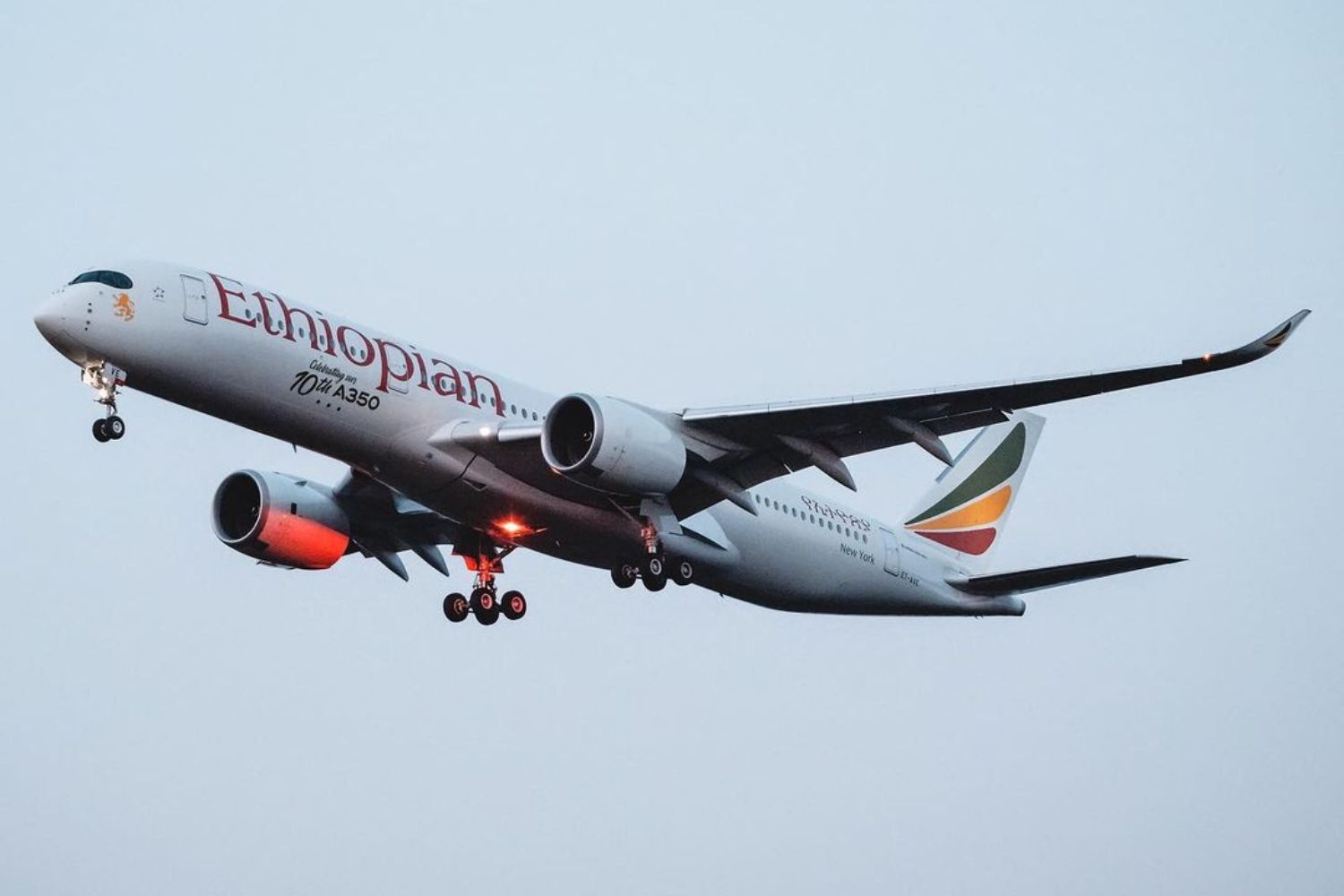In a recent move that has stirred regional aviation circles, Eritrea has banned Ethiopian Airlines from operating flights to and from its territory. This decision has not only disrupted travel plans but also raised significant geopolitical and economic questions about the future of air travel and diplomatic relations. Eritrea and Ethiopia share a complex and often tumultuous history.
The situation began to improve in 2018 when Ethiopian Prime Minister Abiy Ahmed initiated a historic rapprochement, resulting in the reopening of borders and the resumption of diplomatic ties. This thaw in relations was seen as a significant step towards regional stability and cooperation, including in the aviation sector.
Eritrea has issued orders blocking Ethiopian Airlines flights to and from Asmara, with the ban set to be fully effective by the end of September 2024. The Eritrean Civil Aviation Authority has blamed Ethiopian Airlines for “consistent and malicious trading practices.” One of the reasons cited for the decision was the alleged occurrence of “organized and systematic passenger baggage theft and pilferage.”
The statement from the Eritrean Civil Aviation Authority also notes that prolonged delays and losses with no compensation, coupled with unjustified and unwarranted price hikes and other irregularities, were observed. The Eritrean government has not provided an official reason for the ban, leading to widespread speculation.
There are potential reasons for the ban such as political tensions, economic considerations, security concerns and diplomatic strategy. Despite improved relations, underlying political tensions could have resurfaced. Issues such as border disputes, political dynamics, and historical grievances may still influence current policies. Ethiopian Airlines is the largest and most successful airline in Africa, with an extensive network and a significant market share. Eritrea might be seeking to protect its own national carrier, Eritrean Airlines, or to encourage alternative routes that benefit its economy more directly.
Regional security dynamics, including the ongoing instability in neighbouring countries, could have prompted Eritrea to reassess its airspace security policies. Concerns over espionage, smuggling, or other illegal activities might have influenced the decision. The ban could be a strategic move to gain leverage in broader diplomatic negotiations with Ethiopia or other regional actors. Restricting air travel, Eritrea may be positioning itself to extract concessions or to influence regional politics.
Authorities have advised people intending to travel with Ethiopian Airlines to Eritrea to reconsider their plans considering the suspension of flights. The airline operates one of the largest and most reliable networks in Africa, connecting Addis Ababa with major cities across the continent and beyond. The suspension of flights to Eritrea has disrupted travel plans, trade, and tourism. There are 10 flights per week flying from Addis Ababa to Asmara.
ALSO READ: Air China to launch regular flights to Saudi Arabia, boosting bilateral ties and tourism
In addition to Ethiopian Airlines, Saudi Arabian, Turkish, and Egyptian airlines also have regular flights to Asmara. Thousands of passengers who planned to fly between Ethiopia and Eritrea will have to make alternative plans at an expected additional cost. Alternative routes are often less convenient and more expensive. The ban will have economic implications for both countries. Ethiopian Airlines contributes significantly to Ethiopia’s economy, and the loss of access to Eritrean destinations could impact its revenue.
On the other hand Eritrea may experience a decline in tourism and trade, as Ethiopian Airlines is a key conduit for international visitors and goods. Humanitarian Concerns: For families and communities split between the two countries, the ban complicates travel for personal reasons, such as visiting relatives or seeking medical treatment. This adds a human dimension to the broader geopolitical issues at play. The ban on Ethiopian Airlines flights to Eritrea has broader implications beyond the immediate impact on travel and commerce.
It highlights the fragility of regional cooperation and the persistent challenges in achieving long-term political stability. Efforts to promote regional economic integration, such as the African Continental Free Trade Area (ACFTA), rely on open and efficient transportation networks. The suspension of flights between Ethiopia and Eritrea hampers these efforts, highlighting the need for robust mechanisms to resolve disputes and ensure uninterrupted connectivity.
The ban could reflect broader geopolitical dynamics, including the influence of external powers in the region. The situation then raises questions about the future of aviation in the region. African airlines, including Ethiopian Airlines, play a crucial role in connecting the continent and promoting economic development. Ensuring the stability and growth of these carriers requires a cooperative and predictable regional environment.
The Eritrean ban on Ethiopian Airlines flights is a significant development with far-reaching implications for those involved. It underscores the ongoing challenges in achieving lasting peace and cooperation in the region, despite recent diplomatic progress. Resolving the situation will require concerted efforts from both countries, regional organizations, and the international community. By addressing the underlying issues and fostering a cooperative environment, it is possible to restore air connectivity and promote broader regional stability and economic development.
ALSO READ: Ethiopian schoolchildren to spend two months in Moscow and Ivanovo region














Your article helped me a lot, is there any more related content? Thanks!
Thank you for your sharing. I am worried that I lack creative ideas. It is your article that makes me full of hope. Thank you. But, I have a question, can you help me?
Your point of view caught my eye and was very interesting. Thanks. I have a question for you.